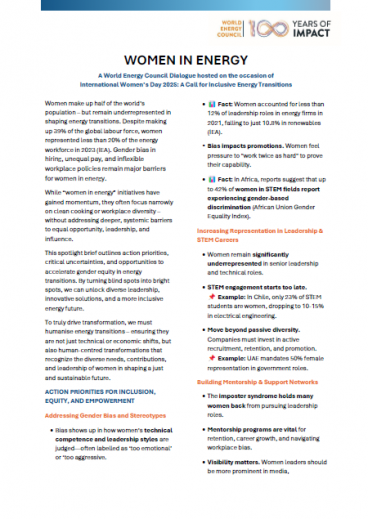
“The pace of change is almost inconceivable,” he said, speaking of the region. The Chinese economy, for instance, is changing at 10 times the speed and 100 times the scale of Britain during the industrial revolution, he said, citing a McKinsey study.
Millions of people around the world are emerging from poverty and transforming the global energy system, he added. China and India will provide the majority of global energy demand in the next two decades.
Voser laid out three critical steps for tackling the coming energy challenges, and drew on examples from Korea. First, strategic planning is a must for growing cities. Seoul, he said, can offer lessons for a “truly integrated approach” to urban development over the past decade. The municipal government collaborated with transport companies, academics and other cities such as San Francisco and Amsterdam to improve its public transport system, and to tackle road congestion and pollution.
Second, the world needs to diversify its energy supply, even though fossil fuels will supply 65 percent of Asia’s energy in 2060, down from 85 percent today. Natural gas “can help to tackle the pollution crisis in some of the Asian cities,” he said.
Voser cited a game-changing project now under construction in Korea, the Prelude floating liquified natural gas (FLNG) facility, a joint venture between Shell, Inpex and KOGAS at Samsung Heavy Industries’ Geoje Shipyard. When completed and deployed in Australian waters, it will be the largest offshore floating facility ever built.
Finally, Voser advocated three policy approaches, urging governments to tackle the region’s urban pollution crisis, encourage investment in new energy sources, and to tackle fossil fuel subsidies that discourage investments in new energy supplies.
Voser was joined in the session by Dr. Youcef Yousfi, the Minister of Energy of Mining in Algeria. He discussed energy developments around the world, focusing on current initiatives and planning in Algeria.
“Algeria is facing many challenges as the result of the growth of its population and the continuous enhancement of its standard of living, which means an increase in energy consumption, and an increase in the social and economic needs of its citizens.”
“At the same time, Algeria intends to remain one of the major international suppliers of hydrocarbons,” he said, pointing to a number of oil and natural gas discoveries in the past year. "The country is also plans to invest $10 billion to develop solar and wind energy with the objective of covering one-third of total consumption by 2030", he said.
This news story is based on the Keynote Speeches session, Day 2, at the 2013 World Energy Congress.






_-80_result_688_387_s_c1_c_c.jpg)

